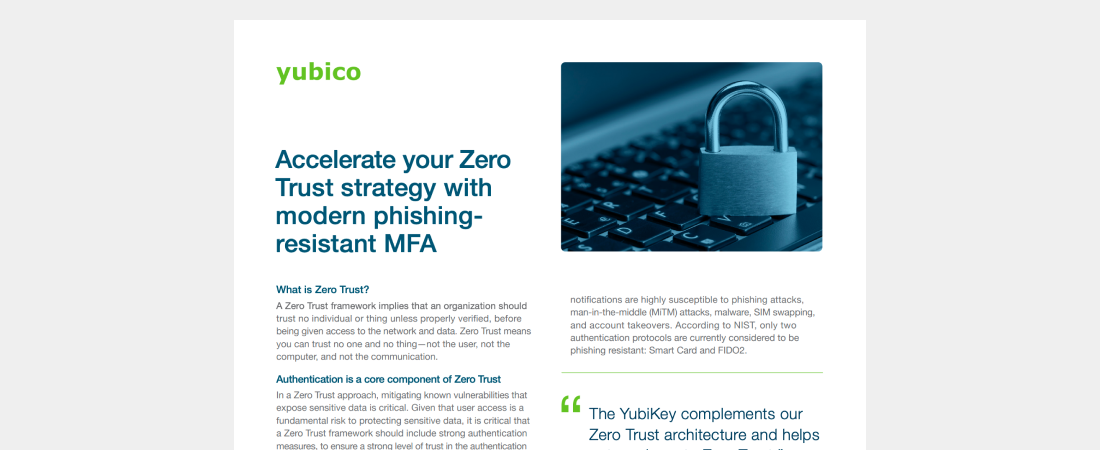October is National Cyber Security Awareness Month and this year, it comes at a time when we are using online services more than ever. The pandemic has forced many of us to almost entirely rely on our digital identities to work, shop, learn, and generally keep in touch, putting the resilience of authentication technologies to the test.
In April, Google reported 18 million daily malware and phishing emails related to COVID-19 over the course of just one week. Six months later, and there are still no signs of social engineering attacks slowing. If anything, we’ve learned that phishing scams are not just targeting executives or people of power — everyday individuals are also at risk and it’s important that every person has the means in place to combat these kinds of attacks. The first step: turn on two-factor authentication (2FA) wherever you can.
Feeling hesitant, or that 2FA might not be for you? We’re here to put a couple of myths to rest, and offer a few tips for Cyber Security Awareness Month, so you can make more informed decisions about boosting your online security.
Cyber security myth #1: Strong and unique passwords will keep you secure enough
Regardless of your password length or the amount of unique characters you use, passwords were not built to withstand motivated hackers and their evolving threats. Don’t get us wrong, proper password management and hygiene is incredibly important, which is why we support a multitude of password managers. But we also urge you to take your online security one step further.
We recommend setting up two-factor authentication (2FA) on all of your accounts — even with your password manager — for an extra layer of security beyond your username and password. This ensures that hackers have to break through two barriers to access your account instead of just one. YubiKey 2FA in particular is designed to minimize threats from remote hackers as it requires physical access to the key to log in.
Cyber security myth #2: All two-factor authentication is created equal
While any kind of 2FA is better than none at all, it’s important to understand which methods may still leave you vulnerable to attacks. For example, SMS codes or mobile authenticator apps are still no match for advanced cyber security threats like SIM swapping, mobile malware, phishing scams, and man-in-the-middle attacks.
As long as your 2FA method of choice is reliant on you to recognize that you’re being targeted by a hacker, human error will always be a possibility and vulnerabilities will continue to exist as even the most vigilant users are prone to being tricked. The ultimate solution that has been proven to protect against phishing and man-in-the-middle attacks 100% of the time is a security key, like the YubiKey. Starting at just $20, it’s a small investment to make for your online security.
Cyber security myth #3: Two-factor authentication is complicated and time consuming
There’s typically a misconception that two-factor authentication makes you jump through too many hoops and is a hassle. In truth, it can be incredibly simple to use and doesn’t always involve copying and pasting one-time passcodes.
There are solutions, like the YubiKey, that require just one touch or a tap of the key to log in. You can even set your phone or laptop to be a trusted device and it will only require you to log in with your YubiKey once, as long as you are on that machine.
Another user-friendly tip: enable YubiKey 2FA on a social identity provider, like Google, Facebook, Microsoft Accounts and others, and leverage these services to register and sign in to other applications. By doing this, you are extending the same level of security on your Google, Facebook, or Microsoft account to every other service, all without requiring additional effort on your end. When thinking about upping your security, remember that strong authentication doesn’t have to be complicated, in fact, it can — and should be — seamless.
Staying safe from hackers might seem daunting or out of your control at the moment – but it’s actually much easier than you might think. And now that we’ve debunked three of the most common cyber security myths around two-factor authentication, we hope you’ll take the necessary steps to better protect your online accounts.
If you’re interested in getting started with two-factor authentication using the YubiKey, visit the Yubico store to purchase one today, and secure your favorite applications like Google, Twitter, Facebook, Dropbox, and more.


